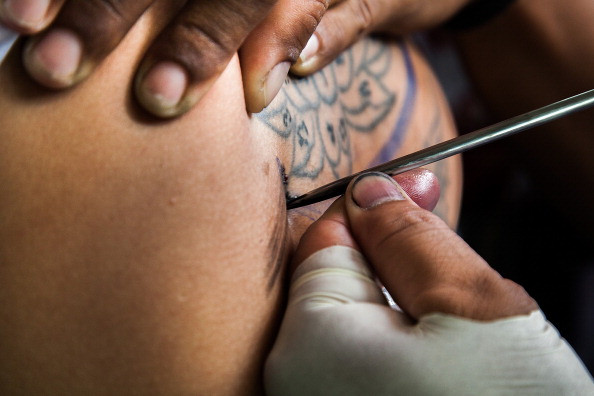Doctors trace Australian woman's 'cancer' to a 15-year-old tattoo
Doctors say her lymph nodes were inflamed because of a reaction to the old tattoo ink, and not due to cancer cells.
A 30-year-old Australian woman suspected of having the cancer lymphoma was actually suffering from a reaction caused by ink from an old tattoo. The case was reported on Monday 2 October in the journal Annals of Internal Medicine.
The woman said she visited a hospital after finding small lumps under her arms, which had been there for two weeks. A body scan showed even more enlarged lymph nodes in her chest, including near the roots of her lungs.
Doctors say her lymph nodes were inflamed after a reaction to old tattoo ink, not cancer cells.
"Ninety-nine times out of 100, this will be lymphoma," said Dr Christian Bryant, a hematologist at the Royal Prince Alfred Hospital in Sydney, reported CNN. Bryant is one of the doctors working on the case.
Doctors removed a lymph node from the woman's armpit and found a cluster of immune cells that were loaded with black pigment.
She reportedly had a 15-year-old tattoo covering her back and recently had a smaller tattoo drawn on her shoulder.
"The skin has its own immune cells that are always surveilling the skin," said Dr Bill Stebbins, director of cosmetic dermatology at Vanderbilt University Medical Center, who was not involved in the study.
The medical journal report said that over the years the immune cells collected tattoo pigment from the skin and travelled with it to the lymph nodes. "The pigment is too large for these cells to eat and digest," Stebbins said. "That's why they're still there many years later."
However, doctors could not detect the reason for the reaction, which happened many years after she got her tattoo. The patient told doctors that her tattoos would occasionally itch, but only for a few days each month. The type of inflammatory response found in her lymph nodes, called a granuloma, was not found in her skin.
Dr Bryant and his colleagues said this was a rare incident. "I think there's absolutely no way to know how common it is," Dr Bryant said. "Most people who have tattoos have absolutely no problems."
What is Lymphoma?
Lymphoma is a type of cancer that begins in infection-fighting cells of the immune system, called lymphocytes. These cells are in the lymph nodes, spleen, thymus, bone marrow, and other parts of the body. When a person has lymphoma, lymphocytes change and grow out of control.

© Copyright IBTimes 2025. All rights reserved.



















